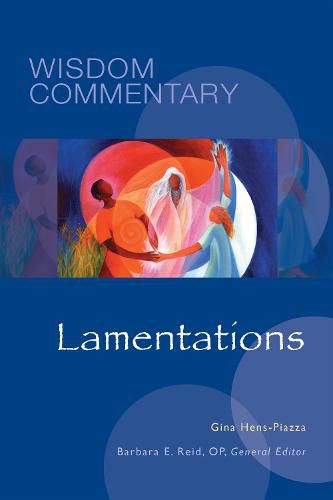Readings Newsletter
Become a Readings Member to make your shopping experience even easier.
Sign in or sign up for free!
You’re not far away from qualifying for FREE standard shipping within Australia
You’ve qualified for FREE standard shipping within Australia
The cart is loading…






This title is printed to order. This book may have been self-published. If so, we cannot guarantee the quality of the content. In the main most books will have gone through the editing process however some may not. We therefore suggest that you be aware of this before ordering this book. If in doubt check either the author or publisher’s details as we are unable to accept any returns unless they are faulty. Please contact us if you have any questions.
Though the five poems of Lamentations undoubtedly refer to the Babylonian siege and destruction of Jerusalem in 587 BCE, the multiple voices that narrate unspeakable suffering and labor to make sense of the surrounding horror do so at women’s expense.
In the opening chapters, a prevailing metaphor of Jerusalem as a woman (Woman Zion) portrays a weeping widow, abandoned and alone, who soon becomes the target of blame for the downfall of the city and its inhabitants. Vague sexual improprieties craft the basis of her sinfulness, seemingly to justify her immense suffering as punishment. The damning effect of such a metaphor finds company in subsequent accounts of women, young girls, and mothers-all victims of the destruction recorded therein. But this feminist interpretation of Lamentations does not stop at merely documenting the case against women; it also demonstrates how such texts can serve as sources of strength by lifting up portraits of courageous resistance amid the rubble of misogynist landscapes.
$9.00 standard shipping within Australia
FREE standard shipping within Australia for orders over $100.00
Express & International shipping calculated at checkout
This title is printed to order. This book may have been self-published. If so, we cannot guarantee the quality of the content. In the main most books will have gone through the editing process however some may not. We therefore suggest that you be aware of this before ordering this book. If in doubt check either the author or publisher’s details as we are unable to accept any returns unless they are faulty. Please contact us if you have any questions.
Though the five poems of Lamentations undoubtedly refer to the Babylonian siege and destruction of Jerusalem in 587 BCE, the multiple voices that narrate unspeakable suffering and labor to make sense of the surrounding horror do so at women’s expense.
In the opening chapters, a prevailing metaphor of Jerusalem as a woman (Woman Zion) portrays a weeping widow, abandoned and alone, who soon becomes the target of blame for the downfall of the city and its inhabitants. Vague sexual improprieties craft the basis of her sinfulness, seemingly to justify her immense suffering as punishment. The damning effect of such a metaphor finds company in subsequent accounts of women, young girls, and mothers-all victims of the destruction recorded therein. But this feminist interpretation of Lamentations does not stop at merely documenting the case against women; it also demonstrates how such texts can serve as sources of strength by lifting up portraits of courageous resistance amid the rubble of misogynist landscapes.